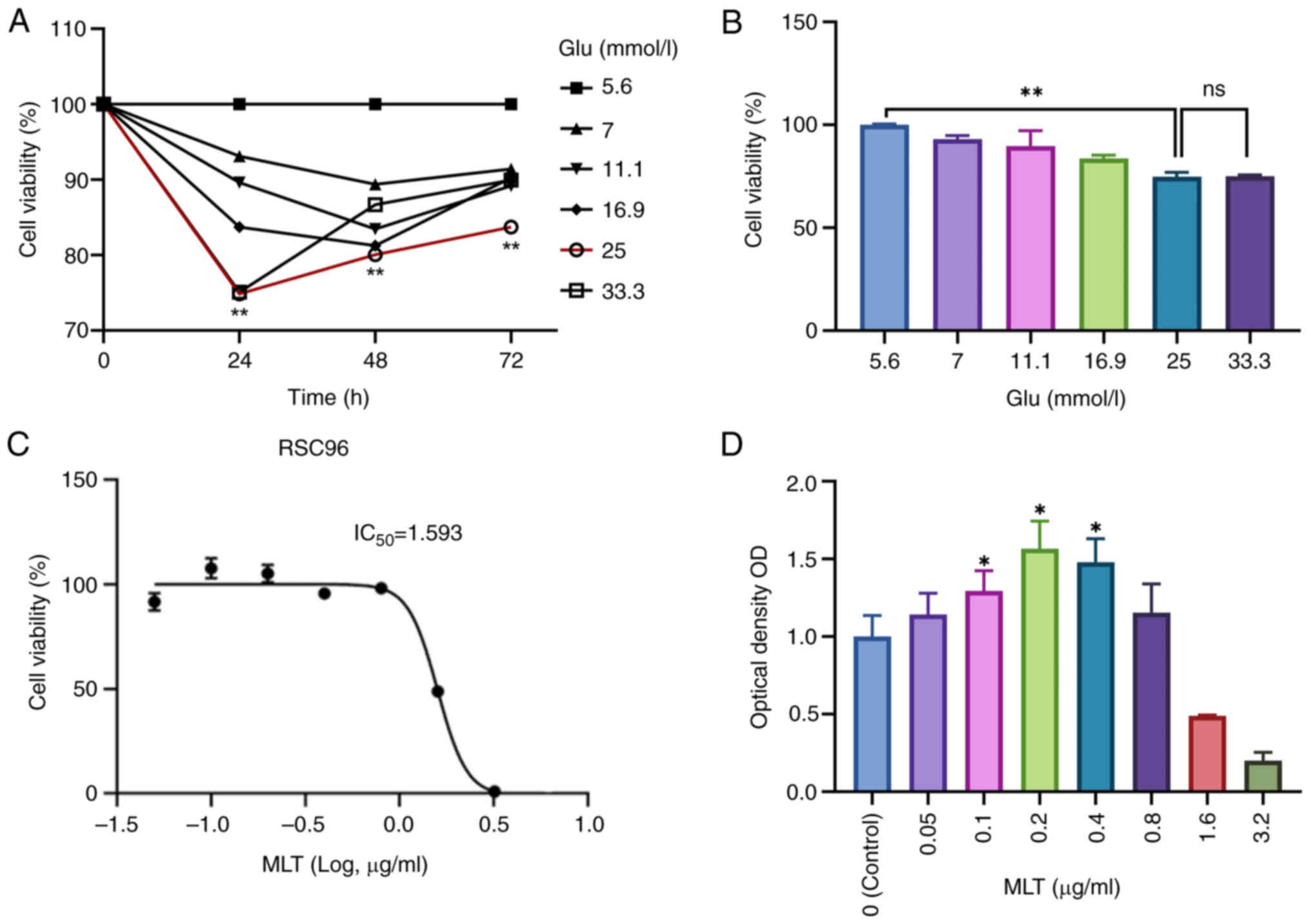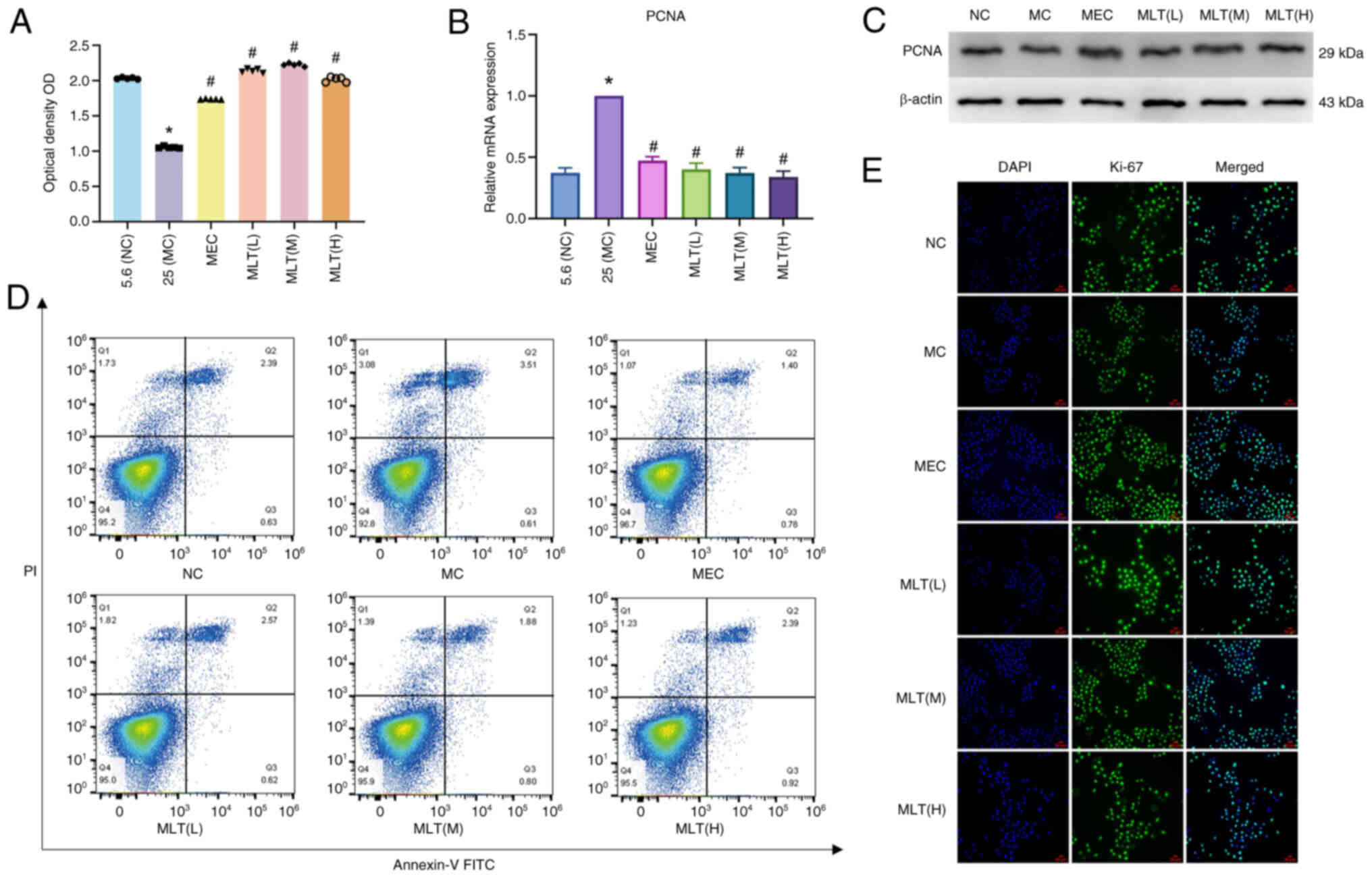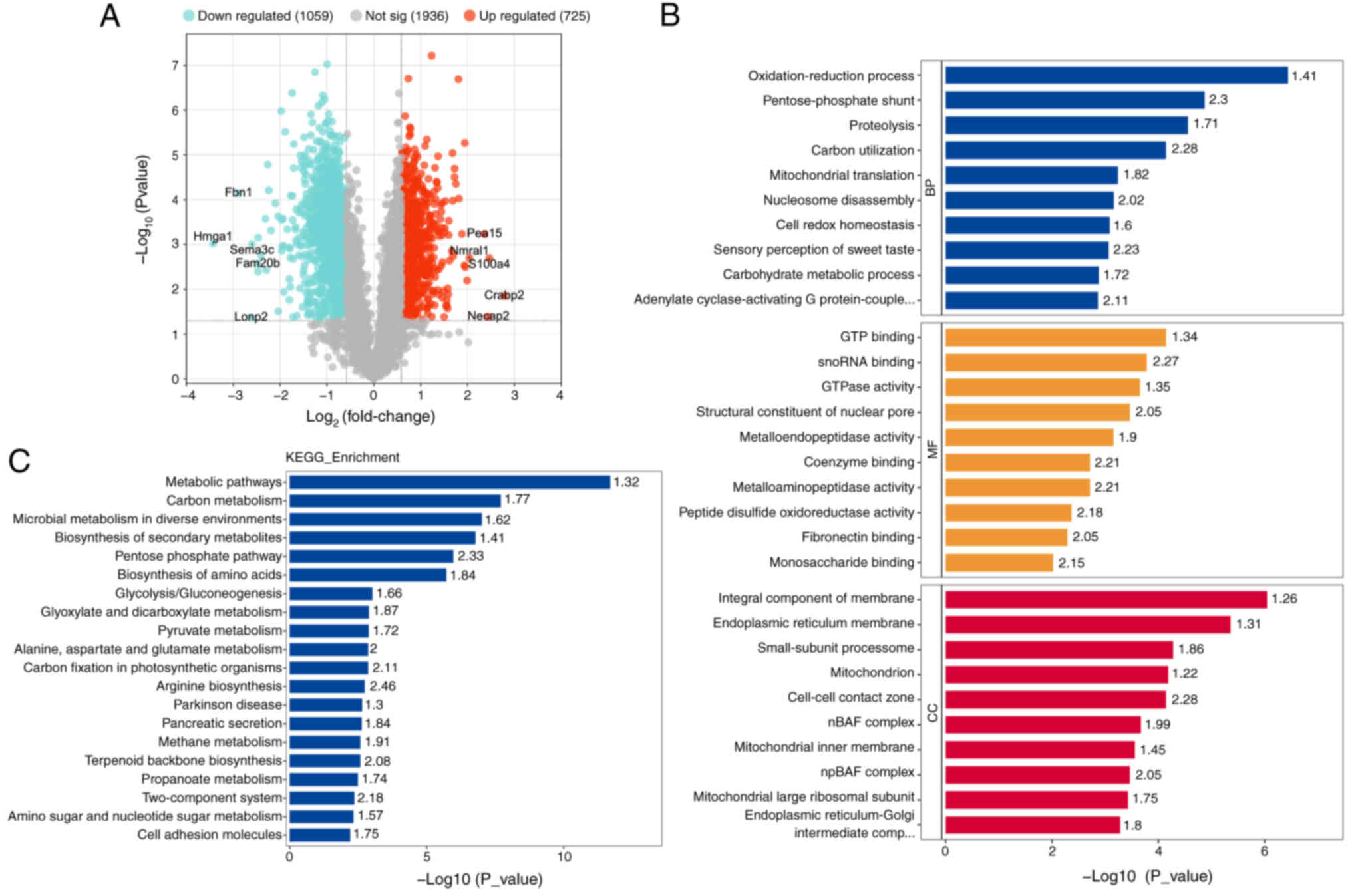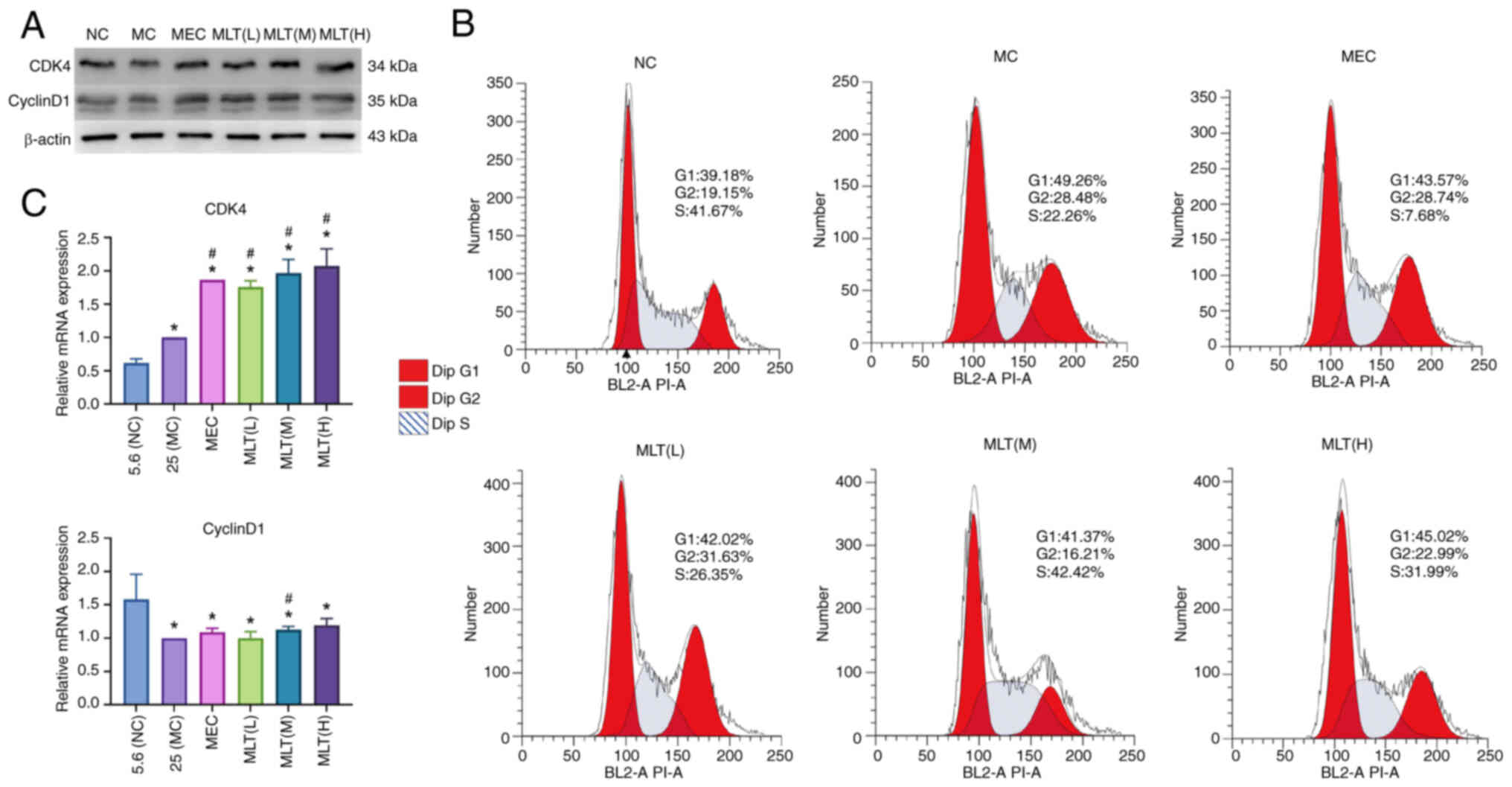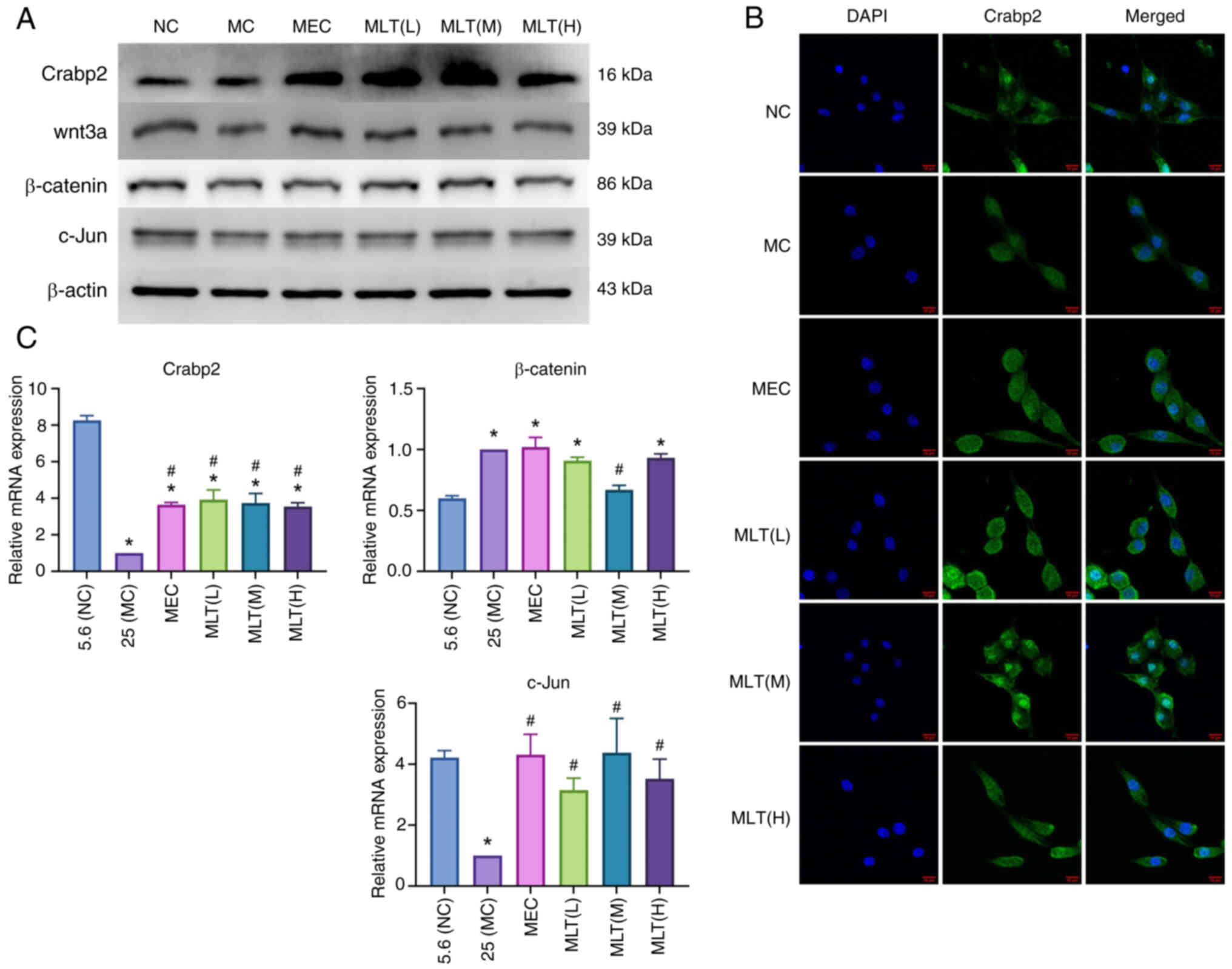|
1
|
Selvarajah D, Kar D, Khunti K, Davies MJ,
Scott AR, Walker J and Tesfaye S: Diabetic peripheral neuropathy:
Advances in diagnosis and strategies for screening and early
intervention. Lancet Diabetes Endocrinol. 7:938–948. 2019.
View Article : Google Scholar
|
|
2
|
Sun H, Saeedi P, Karuranga S, Pinkepank M,
Ogurtsova K, Duncan BB, Stein C, Basit A, Chan JCN, Mbanya JC, et
al: IDF diabetes atlas: Global, regional and country-level diabetes
prevalence estimates for 2021 and projections for 2045. Diabetes
Res Clin Pract. 183:1091192022. View Article : Google Scholar
|
|
3
|
Calcutt NA: Diabetic neuropathy and
neuropathic pain: A (con)fusion of pathogenic mechanisms? Pain. 161
(Suppl 1):S65–S86. 2020. View Article : Google Scholar
|
|
4
|
Sloan G, Selvarajah D and Tesfaye S:
Pathogenesis, diagnosis and clinical management of diabetic
sensorimotor peripheral neuropathy. Nat Rev Endocrinol. 17:400–420.
2021. View Article : Google Scholar
|
|
5
|
Memariani H and Memariani M: Melittin as a
promising anti-protozoan peptide: Current knowledge and future
prospects. AMB Express. 11:692021. View Article : Google Scholar
|
|
6
|
Liu Z, Fan Z, Liu J, Wang J, Xu M, Li X,
Xu Y, Lu Y, Han C and Zhang Z: Melittin-carrying nanoparticle
suppress T cell-driven immunity in a murine allergic dermatitis
model. Adv Sci (Weinh). 10:e22041842023. View Article : Google Scholar
|
|
7
|
Choi S, Chae HK, Heo H, Hahm DH, Kim W and
Kim SK: Analgesic effect of melittin on oxaliplatin-induced
peripheral neuropathy in rats. Toxins (Basel). 11:3962019.
View Article : Google Scholar
|
|
8
|
Shaik RA, Alotaibi MF, Nasrullah MZ,
Alrabia MW, Asfour HZ and Abdel-Naim AB: Cordycepin-melittin
nanoconjugate intensifies wound healing efficacy in diabetic rats.
Saudi Pharm J. 31:736–745. 2023. View Article : Google Scholar
|
|
9
|
Dennis G, Sherman BT, Hosack DA, Yang J,
Gao W, Lane HC and Lempicki RA: DAVID: Database for annotation,
visualization, and integrated discovery. Genome Biol. 4:P32003.
View Article : Google Scholar
|
|
10
|
Livak KJ and Schmittgen TD: Analysis of
relative gene expression data using real-time quantitative PCR and
the 2(−Delta Delta C(T)) method. Methods. 25:402–408. 2001.
View Article : Google Scholar
|
|
11
|
He M, Lv X, Cao X, Yuan Z, Quan K,
Getachew T, Mwacharo JM, Haile A, Li Y, Wang S and Sun W: CRABP2
promotes the proliferation of dermal papilla cells via the
Wnt/β-catenin pathway. Animals (Basel). 13:20332023. View Article : Google Scholar
|
|
12
|
Baum P, Toyka KV, Blüher M, Kosacka J and
Nowicki M: Inflammatory mechanisms in the pathophysiology of
diabetic peripheral neuropathy (DN)-new aspects. Int J Mol Sci.
22:108352021. View Article : Google Scholar
|
|
13
|
Eftekharpour E and Fernyhough P: Oxidative
stress and mitochondrial dysfunction associated with peripheral
neuropathy in type 1 diabetes. Antioxid Redox Signal. 37:578–596.
2022. View Article : Google Scholar
|
|
14
|
Rumora AE, Kim B and Feldman EL: A Role
for fatty acids in peripheral neuropathy associated with type 2
diabetes and prediabetes. Antioxid Redox Signal. 37:560–577. 2022.
View Article : Google Scholar
|
|
15
|
Yang C, Zhao X, An X, Zhang Y, Sun W,
Zhang Y, Duan Y, Kang X, Sun Y, Jiang L and Lian F: Axonal
transport deficits in the pathogenesis of diabetic peripheral
neuropathy. Front Endocrinol (Lausanne). 14:11367962023. View Article : Google Scholar
|
|
16
|
Majd H, Amin S, Ghazizadeh Z, Cesiulis A,
Arroyo E, Lankford K, Majd A, Farahvashi S, Chemel AK, Okoye M, et
al: Deriving Schwann cells from hPSCs enables disease modeling and
drug discovery for diabetic peripheral neuropathy. Cell Stem Cell.
30:632–647.e10. 2023. View Article : Google Scholar
|
|
17
|
Wang X, Xu G, Liu H, Chen Z, Huang S, Yuan
J, Xie C and Du L: Inhibiting apoptosis of Schwann cell under the
high-glucose condition: A promising approach to treat diabetic
peripheral neuropathy using Chinese herbal medicine. Biomed
Pharmacother. 157:1140592023. View Article : Google Scholar
|
|
18
|
Cheng Y, Liu J, Luan Y, Liu Z, Lai H,
Zhong W, Yang Y, Yu H, Feng N, Wang H, et al: Sarm1 gene deficiency
attenuates diabetic peripheral neuropathy in mice. Diabetes.
68:2120–2130. 2019. View Article : Google Scholar
|
|
19
|
Wang Q, Chen FY, Ling ZM, Su WF, Zhao YY,
Chen G and Wei ZY: The effect of Schwann cells/schwann cell-like
cells on cell therapy for peripheral neuropathy. Front Cell
Neurosci. 16:8369312022. View Article : Google Scholar
|
|
20
|
Kalinski AL, Yoon C, Huffman LD, Duncker
PC, Kohen R, Passino R, Hafner H, Johnson C, Kawaguchi R, Carbajal
KS, et al: Analysis of the immune response to sciatic nerve injury
identifies efferocytosis as a key mechanism of nerve debridement.
Elife. 9:e602232020. View Article : Google Scholar
|
|
21
|
Qu WR, Zhu Z, Liu J, Song DB, Tian H, Chen
BP, Li R and Deng LX: Interaction between Schwann cells and other
cells during repair of peripheral nerve injury. Neural Regen Res.
16:93–98. 2021. View Article : Google Scholar
|
|
22
|
Chen CZ, Neumann B, Förster S and Franklin
RJM: Schwann cell remyelination of the central nervous system: Why
does it happen and what are the benefits? Open Biol. 11:2003522021.
View Article : Google Scholar
|
|
23
|
Han IH, Jeong C, Yang J, Park SH, Hwang DS
and Bae H: Therapeutic effect of melittin-dKLA targeting
tumor-associated macrophages in melanoma. Int J Mol Sci.
23:30942022. View Article : Google Scholar
|
|
24
|
Yu X, Dai Y, Zhao Y, Qi S, Liu L, Lu L,
Luo Q and Zhang Z: Melittin-lipid nanoparticles target to lymph
nodes and elicit a systemic anti-tumor immune response. Nat Commun.
11:11102020. View Article : Google Scholar
|
|
25
|
Ombredane AS, de Andrade LR, Bonadio RS,
Pinheiro WO, de Azevedo RB and Joanitti GA: Melittin sensitizes
skin squamous carcinoma cells to 5-fluorouracil by affecting cell
proliferation and survival. Exp Dermatol. 30:710–716. 2021.
View Article : Google Scholar
|
|
26
|
Fan XG, Pei SY, Zhou D, Zhou PC, Huang Y,
Hu XW, Li T, Wang Y, Huang ZB and Li N: Melittin ameliorates
inflammation in mouse acute liver failure via inhibition of
PKM2-mediated Warburg effect. Acta Pharmacol Sin. 42:1256–1266.
2021. View Article : Google Scholar
|
|
27
|
Tender T, Rahangdale RR, Balireddy S,
Nampoothiri M, Sharma KK and Raghu Chandrashekar H: Melittin, a
honeybee venom derived peptide for the treatment of
chemotherapy-induced peripheral neuropathy. Med Oncol. 38:522021.
View Article : Google Scholar
|
|
28
|
Er-Rouassi H, Bakour M, Touzani S,
Vilas-Boas M, Falcão S, Vidal C and Lyoussi B: Beneficial effect of
bee venom and its major components on facial nerve injury induced
in mice. Biomolecules. 13:6802023. View Article : Google Scholar
|
|
29
|
Mandel N, Büttner M, Poschet G, Kuner R
and Agarwal N: SUMOylation modulates reactive oxygen species (ROS)
levels and acts as a protective mechanism in the type 2 model of
diabetic peripheral neuropathy. Cells. 12:25112023. View Article : Google Scholar
|
|
30
|
Pang B, Zhang LL, Li B, Sun FX and Wang
ZD: BMP5 ameliorates diabetic peripheral neuropathy by augmenting
mitochondrial function and inhibiting apoptosis in Schwann cells.
Biochem Biophys Res Commun. 643:69–76. 2023. View Article : Google Scholar
|
|
31
|
Hu Y, Chen C, Liang Z, Liu T, Hu X, Wang
G, Hu J, Xie X and Liu Z: Compound Qiying Granules alleviates
diabetic peripheral neuropathy by inhibiting endoplasmic reticulum
stress and apoptosis. Mol Med. 29:982023. View Article : Google Scholar
|
|
32
|
Larange A, Takazawa I, Kakugawa K, Thiault
N, Ngoi S, Olive ME, Iwaya H, Seguin L, Vicente-Suarez I, Becart S,
et al: A regulatory circuit controlled by extranuclear and nuclear
retinoic acid receptor α determines T cell activation and function.
Immunity. 56:2054–2069.e10. 2023. View Article : Google Scholar
|
|
33
|
Khazeem MM, Casement JW, Schlossmacher G,
Kenneth NS, Sumbung NK, Chan JYT, McGow JF, Cowell IG and Austin
CA: TOP2B is required to maintain the adrenergic neural phenotype
and for ATRA-induced differentiation of SH-SY5Y neuroblastoma
cells. Mol Neurobiol. 59:5987–6008. 2022. View Article : Google Scholar
|
|
34
|
Kim TW, Piao J, Koo SY, Kriks S, Chung SY,
Betel D, Socci ND, Choi SJ, Zabierowski S, Dubose BN, et al:
Biphasic activation of WNT signaling facilitates the derivation of
midbrain dopamine neurons from hESCs for translational use. Cell
Stem Cell. 28:343–355.e5. 2021. View Article : Google Scholar
|
|
35
|
Sun X, Peng X, Cao Y, Zhou Y and Sun Y:
ADNP promotes neural differentiation by modulating Wnt/β-catenin
signaling. Nat Commun. 11:29842020. View Article : Google Scholar
|
|
36
|
Gao J, Liao Y, Qiu M and Shen W:
Wnt/β-catenin signaling in neural stem cell homeostasis and
neurological diseases. Neuroscientist. 27:58–72. 2021. View Article : Google Scholar
|
|
37
|
Jang E, Jin S, Cho KJ, Kim D, Rho CR and
Lyu J: Wnt/β-catenin signaling stimulates the self-renewal of
conjunctival stem cells and promotes corneal conjunctivalization.
Exp Mol Med. 54:1156–1164. 2022. View Article : Google Scholar
|
|
38
|
El-Sawaf ES, Saleh S, Abdallah DM, Ahmed
KA and El-Abhar HS: Vitamin D and rosuvastatin obliterate
peripheral neuropathy in a type-2 diabetes model through modulating
Notch1, Wnt-10α, TGF-β and NRF-1 crosstalk. Life Sci.
279:1196972021. View Article : Google Scholar
|
|
39
|
Kullmann MK, Pegka F, Ploner C and Hengst
L: Stimulation of c-Jun/AP-1-activity by the cell cycle inhibitor
p57Kip2. Front Cell Dev Biol. 9:6646092021. View Article : Google Scholar
|
|
40
|
Requejo-Aguilar R: Cdk5 and aberrant cell
cycle activation at the core of neurodegeneration. Neural Regen
Res. 18:1186–1190. 2023. View Article : Google Scholar
|
|
41
|
Chen Z, Xie Y, Luo H, Song Y, Que T, Hu R,
Huang H, Luo K, Li C, Qin C, et al: NAP1L1 promotes proliferation
and chemoresistance in glioma by inducing CCND1/CDK4/CDK6
expression through its interaction with HDGF and activation of
c-Jun. Aging (Albany NY). 13:26180–26200. 2021. View Article : Google Scholar
|
|
42
|
Lange C, Huttner WB and Calegari F:
Cdk4/cyclinD1 overexpression in neural stem cells shortens G1,
delays neurogenesis, and promotes the generation and expansion of
basal progenitors. Cell Stem Cell. 5:320–331. 2009. View Article : Google Scholar
|
|
43
|
Gao S, Tan H and Gang J: Inhibition of
hepatocellular carcinoma cell proliferation through regulation of
the cell cycle, AGE-RAGE, and Leptin signaling pathways by a
compound formulation comprised of andrographolide, wogonin, and
oroxylin A derived from andrographis paniculata(Burm.f.) nees. J
Ethnopharmacol. 329:1180012024. View Article : Google Scholar
|















